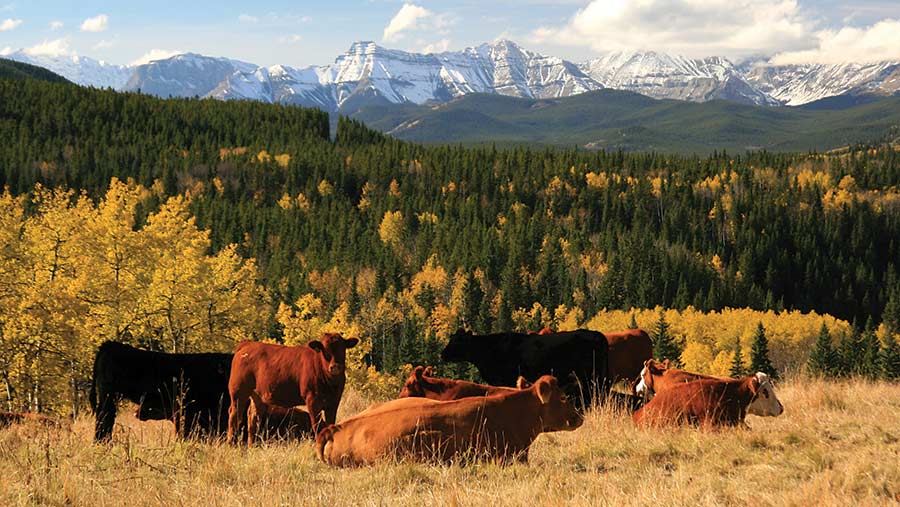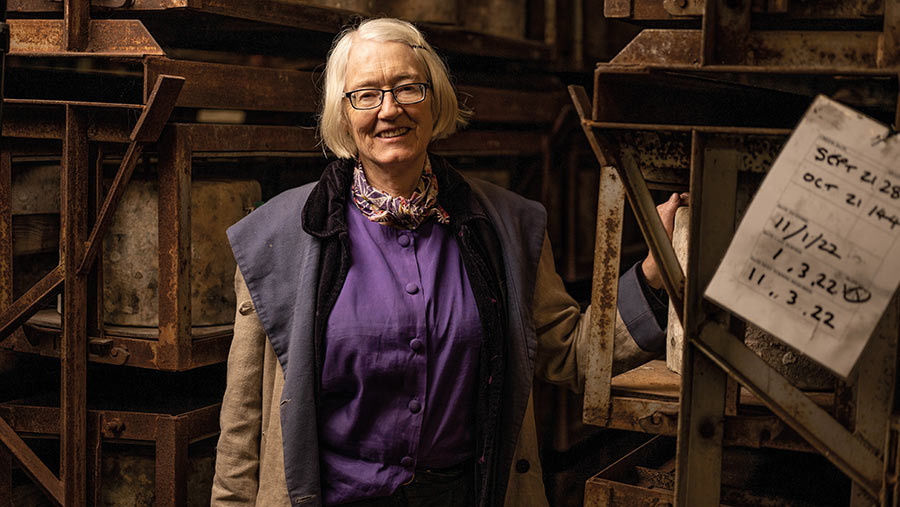What the CPTPP free-trade bloc could mean for UK agriculture
 © ImagineGolf/Adobe Stock
© ImagineGolf/Adobe Stock The UK is set to join an 11-nation Indo-Pacific free-trade bloc in the coming year, but debate rumbles on over whether this will be good or bad for British agriculture.
Prime minister Rishi Sunak says joining the Comprehensive and Progressive Agreement for Trans-Pacific Partnership (CPTPP) will “demonstrate the real economic benefits of our post-Brexit freedoms”, drive economic growth and create new jobs.
Joining CPTPP provides access to 11 nations with 500 million consumers – a similar population to the EU, albeit on the other side of the world and with lower food and animal welfare standards.
See also: Pacific trade deal to include ag product tariffs – NFU chief
According to the government’s own statistics, however, despite all the fanfare, the deal is projected to benefit the entire economy (UK GDP), including the dominant services sector, by only 0.08% over 10 years.
The government has not broken down this data into sectors, so it is not possible to provide a figure for agriculture.
Industry commentators have questioned why the government is so enthusiastic about the deal, as the UK already has free-trade deals with nine of the 11 CPTPP nations, having recently added Australia and New Zealand to its tally.
Just Malaysia and Brunei are left, but these two countries account for less than 0.5% of total UK trade. In 2019, trade with CPTPP countries accounted for 8% of total UK exports – that’s less than the amount we sell to Germany.
Some commentators are concerned that any gains from CPTPP will be negated by loss of access to the EU market due to the high possibility of standards being lowered.
Tariff quotas
The UK government has made assertions that British farmers will be protected with tariff rate quotas (TRQs), which will limit the amount of produce allowed into the UK market. It also insists it will protect the high food, animal welfare and environmental standards of British agriculture.
Canadian beef producers had been hoping to gain meaningful access to the UK market through our accession to CPTPP.
However, six countries (Brunei, Chile, Malaysia, Canada, Mexico and Peru) have agreed to share an initial quota, which increases over 10 years to a maximum of 13,000t.
The Canadian beef industry has made it clear it wants the main obstacle to the UK market – acceptance of Canada’s meat hygiene system, which includes hormone use – to be addressed in the bilateral free-trade agreement deal, which is currently being renegotiated and is due to conclude by April next year.
Despite the Conservative government’s failure to legislate to protect Britain’s high food and farming standards in the Agriculture Act 2020, Mr Sunak insists he will not allow hormone-implanted beef into the UK in any future trade deals.
A full list of TRQs agreed for imports into the UK can be found in the Conclusion of Negotiations on Gov.uk.
AHDB modelling
Industry organisations have been trying to evaluate what impact the UK’s entry into CPTPP will have on its agricultural industry, both at home and overseas.
The AHDB, in conjunction with Harper Adams University, has undertaken a quantitative impact assessment to predict the effect of the UK’s accession to CPTPP, using an International Agri-Food Trade Network model (See “Potential wins for red meat and dairy, says AHDB”).
Nicholas Saphir, AHDB chairman, tells Farmers Weekly the modelling shows that, while initial opportunities are limited, there could be export opportunities for UK food and drink producers in the long term, especially for red meat and dairy.
Mr Saphir says: “If you look at the Pacific Rim export opportunities, these are about middle-class and income growth. That means it plays directly to us if we get it right in terms of provenance, quality and innovation.”
However, trade with China is a “key consideration”, Mr Saphir notes. For example, for beef, New Zealand, Australia and Canada currently export a large amount to China.
If these trading arrangements change, for any reason, a large amount of beef will be diverted in the marketplace, including to the UK and other countries.
Potential wins for red meat and dairy, says AHDB
Red meat and dairy producers could benefit most from long-term opportunities following the UK’s accession to Comprehensive and Progressive Agreement for Trans-Pacific Partnership (CPTPP), trade modelling analysis by the AHDB reveals.
While initial opportunities are limited, the analysis foresees wider benefits in the future in the Asian and South American markets, driven by increased demand for red meat and dairy products.
Further opportunities for UK red meat and dairy may also be presented by other countries such as China, Taiwan, Ecuador, Costa Rica and Uruguay joining the CPTPP, with the offering of preferential terms and either lowering or removing tariffs over time to other members.
The model estimates that based on a 2019-21 three-year average, UK exports to CPTPP countries for beef, lamb and pork will increase by about 60%, 26% and 23% respectively after the UK’s deal with CPTPP comes into force.
The model suggests beef, lamb and pork exports to the UK will increase by 49%, 37% and 211% respectively.
Jess Corsair, AHDB trade and policy senior analyst, said: “Looking at the countries within CPTPP, the population is predicted to grow and affluence is expected to rise as well, so there could be demand for more higher-quality products.
“There are also countries who have applied to join CPTPP – the biggest being China – so this is almost our foot in the door to these markets.”
AHDB’s trade modelling analysis on CPTPP is available to view online at ahdb.org.uk.
‘Threat to standards’
Food and farming organisations have warned entry into the bloc risks undermining food safety, farming and environmental standards in the UK and in supply chains.
Vicki Hird, sustainable farming campaign co-ordinator at Sustain, believes the AHDB modelling is “highly optimistic” and ignores wider societal impacts on climate, health and nature, both here and overseas.
Ms Hird says Sustain remains “hugely concerned” the UK’s accession to CPTPP could lead to more food imports containing pesticides currently banned from appearing in UK food for health reasons, and more imports from countries that use high levels of antibiotics or use them as growth promoters.
“It may put pressure to weaken good food, environment and animal welfare policy here and hamper progress by UK farmers to grow food sustainably, by handing producers in CPTPP countries a competitive advantage,” she adds.
Sustain says the government must devise a better trade strategy, with proper parliamentary scrutiny and core food and farming standards, including on antibiotics, animal welfare and pesticides.
Liz Webster, a farmer from north Wiltshire and founder of the lobby Save British Farming, has been investigating the impact of CPTPP for some time and is deeply sceptical about what it may do to British agriculture and our food security.
“My fear with CPTPP is that the power is centralised for corporations, not producers.
“And while the current terms that have been negotiated seem more favourable than the Australia and New Zealand post-Brexit deals, the danger is that large producing member nations are lobbying already to eradicate this protection for Britain,” she says.
“Being a small country on the other side of the world, one cannot see how Britain can win.
“Indeed, Europe must agree with us, which is why they have been so insistent on the hard border between us and them to protect the Single Market from low-standard imports.”
Next steps
The UK and CPTPP leaders concluded an agreement on 31 March this year, but this still needs to be ratified by individual member nations. No specific date for the conclusion of the deal has been announced.
A spokesperson for the Department for Business and Trade says: “We are determined to help UK farmers boost their exports of high-quality British produce around the world – in 2022, the UK exported £2.4bn of food and drink products to CPTPP countries.
“With more than 500 million consumers, joining CPTPP will support British food and drink producers to sell even more produce to some of the world’s biggest and fastest-growing markets in the Americas and Asia-Pacific.”
Take advantage of export opportunities, says cheesemaker
Fourteenth generation cheesemaker Mary Quicke urges all UK producers to consider exporting their goods to CPTPP member countries.
Ms Quicke is managing director of Quicke’s Cheese, a family farming and cheesemaking company based at Home Farm, in Exeter, Devon, which has been exporting artisan cheese to Australia and the Far East since the 1970s.

© Matt Austin
She believes the UK’s accession to CPTPP may help her company’s cheese exports to Australia, and will certainly make sales easier to other signatories.
“Whether or not CPTPP is a good or bad idea is largely in our own hands,” she says.
“Tariff barriers will be dropped over time, which means inevitably we will be importing more food from these countries.
“But it’s up to us to use the new opportunities to ensure British agriculture gains by entry to CPTPP, rather than loses.”
Ms Quicke says the AHDB is a great source of information and advice for anyone considering exporting goods.
“Let’s work with AHDB to make it work. It’s urgent. We have to be gearing up to export as fast as other CPTPP countries undoubtedly will,” she adds.
